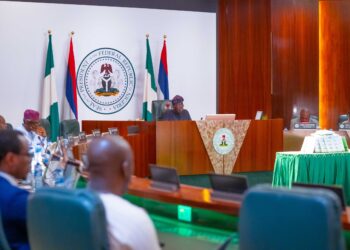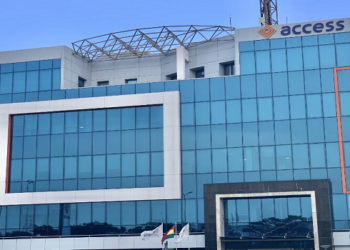The Economic Sustainability Committee set up by President Buhari to propose action points that can address the economic challenges of the COVID-19 pandemic has proposed a unified exchange rate to increase FAAC payments. The plan was put together by the Economic Sustainability Committee (ESC) assembled by President Muhammadu Buhari. Members of the committee included the Vice President, CBN Governor, 15 Ministers, GMD NNPC, and the Permanent Secretary.
The committee made several recommendations for the government to follow settling for a scenario that requires a stimulus of N2.3 trillion. According to information contained in the report, the committee settled for a variant of scenario 3 which requires a stimulus package of N2.3 trillion. The government explained that the reason for settling for Scenario 3, citing “the low level of revenues and the importance of monetary stability” as reasons.
The scenario also involves spending on infrastructure development and continued focus on agriculture and self-sufficiency in line with the president’s “produce what we eat” mantra. “We decided that the best way to beat the triple problem of very low foreign exchange, huge unemployment, and negative growth is by focusing on Mr. President’s mantra to produce what we eat and eat what we produce” the report revealed.
In dealing with Nigeria’s exchange rate debacle, which in recent years seen the country maintain multiple exchange rate regimes, the imposition of capital controls and ban on several imported items, the committee made proposals that involve unifying the country’s exchange rate system.
On page 34 of the report, which deals with monetary policy measures, the committee recommended that the government “Unify exchange rates to maximise naira returns to FAAC from foreign exchange inflows.” Here are the policy recommendations contained in the monetary policy measures;
- Provide N1tn in loans to boost local manufacturing and production across critical sector.
- Unify exchange rates to maximise naira returns to FAAC from foreign exchange inflows.
- Manage the exchange rate in a sustainable manner.
- Invoke partial risk guarantees for SMEs.
- Grant additional moratorium of 1 year on CBN intervention facilities. • Reduce interest rate on intervention facilities from 9% to 5%.
- Create N100bn target credit facility for affected MSMEs.
- Grant regulatory forbearance to banks to restructure terms of facilities in affected sectors.
- Improve foreign exchange supply to the CBN by directing oil companies and oil service companies to sell foreign exchange to the CBN rather than the NNPC.
Flashback: Recall, the CBN in March adjusted (devalued) the naira from N307/$1 to N360/$1 in the official market where the government converts forex from crude in exchange for Naira from the CBN. It then moved the rate at which it sells forex in the Bureau De Change to N378-380/$1 from N360/$1.
- In a press release stating its adjustment, the CBN officially devalued by 15% moving from N307/$1 to N360/$1.
- Depreciation at the “market-determined” I&E window is 5% having moved from N360/$1 to N380/$1.
- Nairametrics also got hold of a letter from the CBN to banks informing them of the new exchange rate for dollars flowing from the International Money Transfer Operators (IMTOs).
- According to the CBN, IMTOs will sell to banks at N376/$1 while banks will sell to the CBN at N377/$1.
- The CBN will sell to BDC’s at N378/$1 while the BDC’s will sell to end-users at “no more than” N380/$1.Since then, transaction volumes have crashed in the IFEX market where forex is traded as investors react to the Covid-19 lock-down.
The black market where the exchange rate is also sold crashed to as high as N460/$1 this week as dollar scarcity persisted in the market. The CBN had also recently stated that International Oil Companies “IOC’s should henceforth sell dollars directly to CBN and not the NNPC as was the case.
“We are committed to improving forex supply to the CBN, by directing all oil companies -international, and domestic, whether you are in the service industry, or producing, upstream, midstream, downstream, or related companies, to sell their foreign exchange to the CBN and no longer to NNPC, for purposes of funding even import of petroleum products, and also new policy on price modulation.”
The CBN hopes this policy will make it more active in the forex market injecting more liquidity in the I&E window. Estimates of private sector dollar demand, otherwise called “pent up demand) is anything between $2 billion and $5 billion depending on who you talk to. There are no official stats.
What this means: The committee is proposing unifying the exchange rate as one of the countermeasures to deal with the shortage in its Federal Accounts Allocation Committee where oil and non-oil revenues accruing to Nigeria are shared by the Federal and State Governments. This means the more depreciated the naira is against the dollar the more cash the government has available to disburse via its FAAC sharing.
Nigeria still has multiple exchange rates as we have highlighted in the report above. The BDC segment exchanges for N368/$1, the I&E window which is market-driven exchanges for about N397/$1, the CBN buys from the NNPC at N377/$1 and the black market is trading for between N450-460/$1. Unifying the exchange rate will mean that the government goes back to the days of fixed exchange rate where it determines the rate it will be traded for in all markets, or have a single exchange rate market where forex is traded at market-determined prices.
The CBN and according to sources, the presidency, currently does not believe in floating the exchange rate between the naira and the dollar.



















That’s some very good news, waiting to hear the end of it.